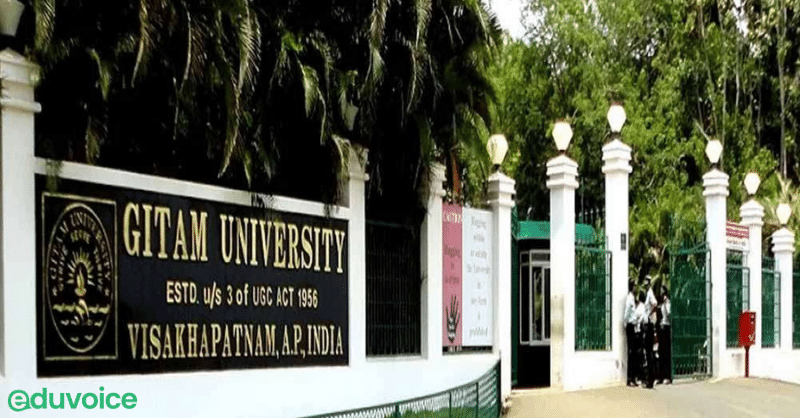The National Education Policy (NEP) 2020 includes a “lot of good language” and talks about rankings, transparency, ownership, flexibility and multi-disciplinary research but the policy-makers must also “think about the rising cost of higher education and its affordability for a majority of the population”, said M Sri Bharat, President, Gandhi Institute of Technology and Management University (GITAM)
In an interaction with Careers360 earlier this week, Mr. Bharat also spoke about the Academic Bank of Credit (ABC) for which the University Grants Commission recently drafted guidelines. The ABC is intended to be an online repository of academic credits, stored for each student and gathered overtime for a degree. It is meant to allow students mobility across courses, programs, and disciplines.
While Mr. Bharat appreciates the flexibility this will allow, he is skeptical about the outcome.
The credit banks are good but if you are looking at someone who hasn’t been able to complete their degree, then they are having less-than-ideal career outcomes. And will they be in a position, years from now, to take time off and come and do a full-time program? Maybe not. Learning has to be provided to them in a manner that is accessible,
Mr. Bharat said.
The National Education Policy (NEP 2020), which was approved by the Union Cabinet last year, has been appreciated for proposing multi-disciplinary research, collaborations between foreign and Indian institutions, and multiple entries and exits in higher education.
Mr. Bharat, while talking about how enabling the NEP is for a university like GITAM pointed out that many regulations in India are about minimizing the damage or controlling quality.
“I am aiming for the sky and for that, I need regulations to be that aggressive. I don’t think the regulators today operate in that environment. They are more worried about the minimum standards of quality,” he said.
The NEP also emphasizes online learning, a mode of education GITAM will adopt as well. Mr. Bharat said: “The university has plans of giving online degrees. We have been given permission to offer online degrees in certain programs, and creating the capacity and quality for that would be the one thing that we’ll focus on.”
Physical Campuses
While online degrees are in the pipeline, Mr. Bharat is equally keen on strengthening GITAM’s physical campuses to be more supportive and nurturing. “I am not happy with where society is today,” he said. “We are rewarding people who have achieved success regardless of how they get there. We are awarding the powerful and forgetting the weak and that’s not the nation that I would like us to be and for that to change, I think we need to incorporate good values in our students when they are with us. So, whether it is for two, three, or four years, we are looking at making our campus life ecosystem one that is nurturing, that is character-building.”
Asked why GITAM doesn’t stand out in the National Institutional Ranking Framework, or NIRF rankings, despite a good rating by the National Assessment and Accreditation Council (NAAC), Mr. Bharat said: “In the past two-plus years, our focus has been on fundamentals like leadership, values, and systems that need to be reimagined. While articulating long-term goals is critical, our energy has been directed at building these strong foundations first. The pursuit of metrics and rankings automatically follows. We may be a 40-year-old organization but for me, it’s very much like a very large start-up.”
For More Such Articles, News Update, Events, and Many More Click Here






